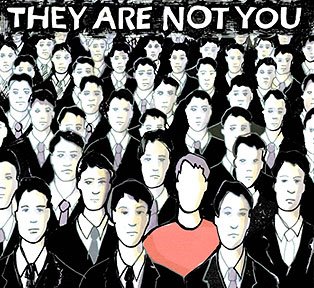I haven't written a post in SO long. I think the more free time I have, the more I post. As is normal. And I'm one of those people who has to have a burning desire to speak out on a topic before I can post. And when I work or study, I am disengaged from the outside world for the most part, and do not have that yearning. But here I am back again, waiting to hear about a possible job opportunity from my previous employer and whilst I wait - I can write.
I recently visited India on my way back to Colombo, and spent time in Mumbai and Trivandrum for the first time in my life. After reading the book, Shantaram, I felt this yearning to go to Mumbai. However, little did my anglocised mind realise that I will definitely run away from all things to do with dust, dirt, heat and chaos when there. Which meant my senses reeled whilst I was there. But two things I did notice.
In Trivandrum, due to the lack of taxis, we resorted to take trishaws around the dusty city. Kerala for the most part, is identical to Sri Lanka - its environment, its climate - makes you wonder whether you are in rural Sri Lanka. Anyone who visits Kerala will be hard pressed to argue that Sri Lanka was never a part of India. As Jaffna resembles the landscape of Tamil Nadu, Kerala represents the landscape of North West Sri Lanka.
But one thing is different. The people. I will illustrate my point via an incident. Anyone who has previously visited India would know that driving there is the equivalence of committing road suicide. Cars, Vans, Buses, Trishaws, Motorcyclists, Cyclists, Pedestrians, Cows, Dogs and Rats all claim rights to the roads. Traffic moves diagonally on three parallel lane roads. If you see a space, you must steer your vehicle towards it. Doesn't matter if its diagonally opposite to the direction you wish to travel in. All space must be utilised.
Anyone who drives on Duplication Road or Galle Road at rush hour will probably feel similarly. Trishaw drivers swerve to the left or the right with no care about the passing vehicle. If you look at a Sri Lankan motorists expression whilst they are on the road, it is of irritation or anger. Road rage rules here.
In an equally bad or even worse traffic jam in India, one looks at the motorists faces and they are not perturbed. They rely on tooting the horn but rarely are there shouts or claims of vengeance made. My trishaw driver whilst attempting to steer us through a horrific traffic jam, spotted an open space to the north west of his current position. Next to us, (2 inches away) there was a motorcyclist - whose second passenger had rested his feet on the ground whilst the cycle was not in motion. Sitting in the back, I noticed this man's foot 2 inches away from the trishaw tyre. I also noticed that to get to the open spot, the trishaw driver must pass even closer to the motor cycle. I began to worry - in my experience in my country, no one gives a damn who they hurt to get to where they need to go. Mostly, they'll only care if their vehicle gets damaged.
As I watched on anxiously, the trishaw driver slowly inched the vehicle forwards, looked down to see if anything was going to hit him and then noticed his fellow Indian's foot lying in the way of inching a few yards forward. And manoeuvered the vehicle away from causing any harm.
It's not much. And I probably haven't put across the poignancy of the moment. But it showed that a billion Indians are able to live together in close proximity together because they have a mind that registers fellow human beings. They are able to ram cars across roads and hurtle 20 km/h on congested city roads, because under their nonchalant exterior, they respect their countrymen. They rarely hurl insults out of windows although there's plenty reasons to do so. Most vehicles carry a statue of their respective God at the dashboard.
This divine presence on the dashboard is not a mock display of spirituality or a method to advertise their religion - I believe India is what it is for its secularity. Its ability to tolerate other religions, tolerate so many human beings cramped together, tolerate proximity, not just for the sake of tolerance but also because of a sense of humanity.
Maybe their belief in so many versions of God makes these Indians more humane and maybe, keeps them sane.



